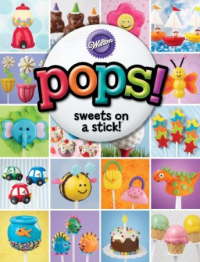Selling Food on Etsy
By Stephen Bucaro
As you may know, Etsy is a marketplace
where artists and crafters sell their handmade products, and people with refined taste
purchase custom art and handmade crafts. The term "handmade" includes edible products.

On Etsy you'll find people selling cakes and other pastries, cookies, brownies,
jellies, and even dog treats. Many of these food products are obviously not made to
be to be eaten, they're more like works of art or edible crafts. If your food product
is meant to be looked at, but not necessarily eaten, you should stipulate that in writing,
because their are certain legal implications involved with selling food products.
Etsy’s Terms of Use
state that it's up to the individual seller to make sure their product complies with
the appropriate regulations. And because of safety concerns, food is one of the most
highly regulated businesses.
Many of the regulations and licenses required are at the county and state level,
and they very from county to county and state to state. Your best bet is do an online
search or directly contact your local department of health. For example in Maricopa
County Arizona, the Environmental Health Division, part of the Environmental Services
Department issues permits to, and inspects food businesses.
The moment your food product is sold across state lines, it becomes subject to federal
regulations. In the United States, federal regulations governing food safety are
fragmented and complicated. There are 15 federal agencies sharing oversight of food
safety. The primary agency responsible for food safety of non-agricultural nature is
the Food and Drug Administration (FDA). And the primary concern of the FDA is with
food labeling.
Some people are allergic to certain foods, food components, or additives. For example
some people have a severe physical reaction to even the slightest trace of peanut. That
reaction is rapid in onset and can even cause death. Some people experience numbness,
heart palpitations, and other symptoms from the flavor-enhancer MSG. There are many other
specific food allergies experienced by the general population.
The FDA has detailed guidelines on what must be on food labels. Labels must list
ingredients to help consumers choose foods with ingredients they want or need to avoid.
They should give instructions for safe handling and storage of the product. The
rules are outlined in the Food Packaging and Labeling Act. At the time of this writing
you can find more information here:
FDA Food Labeling Guide.
You can get a food-labeling exemption if your small-business doesn't exceed certain
parameters. One exemption, for low-volume products, applies if the person claiming
the exemption employs fewer than an average of 100 full-time equivalent employees and
fewer than 100,000 units of that product are sold in the United States in a 12-month period.
Another type of exemption applies to retailers with annual gross sales of not more
than $500,000, or with annual gross sales of foods or dietary supplements to consumers
of not more than $50,000. At the time of this writing you can find more information here:
Small Business Nutrition Labeling Exemption.
| 
